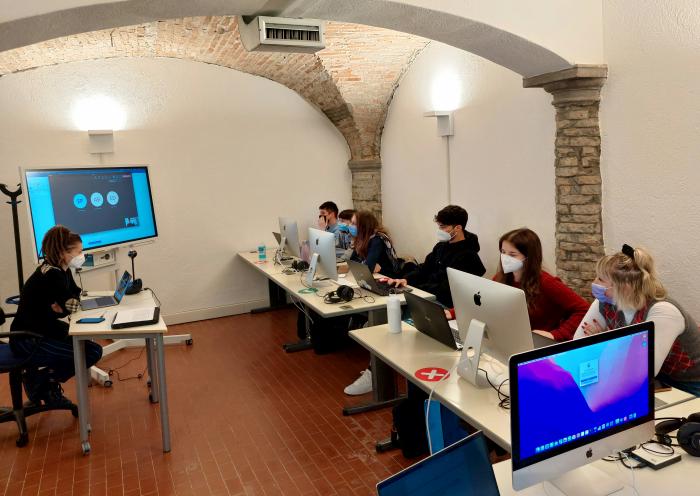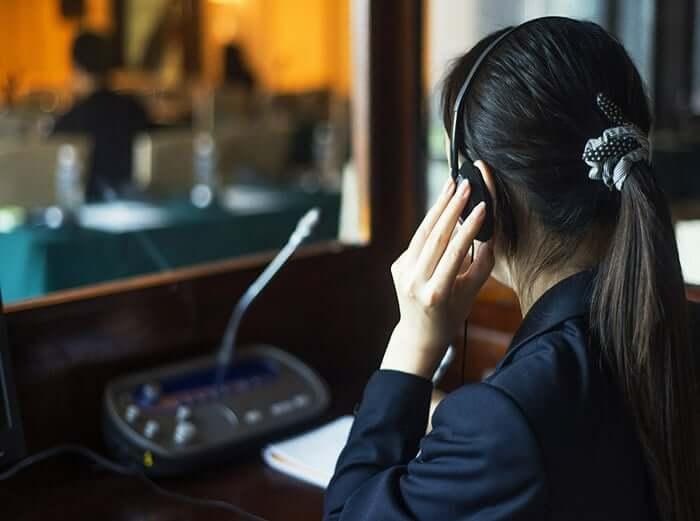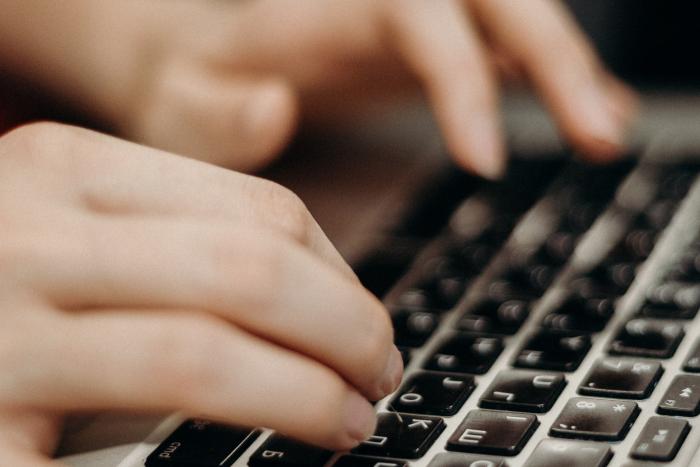The workshops offer activities, linked to the themes of the Department of excellence, that allow the participants to developskills and abilities on an practical level. They offer important training experiences that prepare participants for the world of work.

The VideoDigitalLab multimedia lab is primarily aimed at specialising students in the management of new visual communication systems. The lab, located at the Geography and Urban Studies degree building, is equipped with five 27-inch iMac workstations, with headphones with microphone, hardware peripherals, uninterruptible power supplies and equipped with graphics and video editing software licences.

The Simultaneous Interpreting Laboratory consists of four simultaneous interpreting booths (with a total of eight workstations) used both in language teaching and for seminar and workshop activities involving professional interpreters and translators. Licences were also purchased for sophisticated computer assisted translation programmes (CAT tools), such as the industry-leading Trados Studio and Trados Studio 2021, with which specific workshops were organised. This programme also offers students access to professional translators' forums for sharing experiences and enables them to obtain a certification that can immediately be used in the labour market. The Ooona software made it possible to set up workshops on technologies for composing and translating subtitles and creating audio descriptions. The Sketch Engine platform, an online resource for corpora analysis, also enables research in translanguaging and specialised translation.

The Media Library at the Language Competence Centre was built to support the media requirements of the highly qualified teaching activities envisaged by the Department of Excellence project, including the purchase of bibliographic and multimedia material. The facility has 11 PCs for audio-active-comparative language learning.
In addition, the Language Competence Centre provides a laboratory with 17 networked PCs and a dialogue/reception space.
The UNIBG Eye-Tracking Lab is a laboratory equipped with a set of state-of-the-art hardware and software that enables researchers at the Department of Foreign Languages, Literatures and Cultures to carry out various biometric readings. The combination of different sensors and data sources enables a clearer, more systematic and incisive understanding of human behaviour and the reactions that humans show in response to different visual stimuli (e.g. written texts, images, multimedia material).